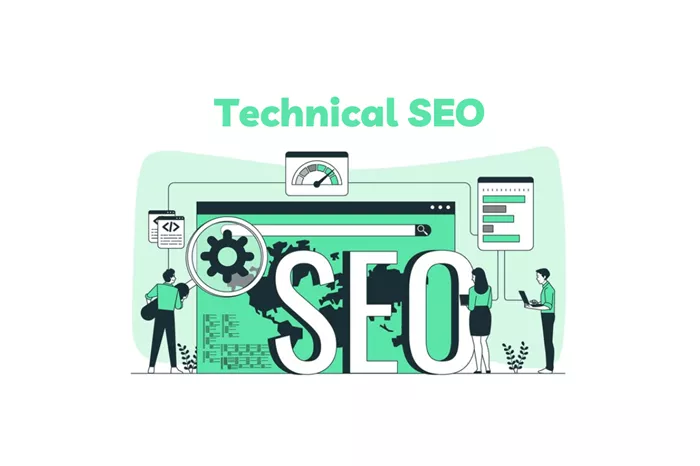In the digital age, where competition online is fierce and user attention is fleeting, having a well-optimized website is no longer optional—it is a necessity. Among the many facets of search engine optimization (SEO), technical SEO stands out as a foundational pillar. It deals with the behind-the-scenes elements that make a website accessible, fast, and understandable to search engines like Google. Without solid technical SEO, even the best content might never reach its intended audience. This article explores the critical components of technical SEO, why it matters, and how mastering it can drive your website’s visibility and performance.
Technical SEO Ensures Search Engines Can Access Your Website
At its core, technical SEO focuses on how search engines crawl, index, and render your website. If your website isn’t easily accessible or understandable by these automated bots, your content may never appear in search results, regardless of quality. This involves optimizing site architecture, fixing broken links, improving page speed, and creating an XML sitemap. Search engines rely on clear signals and structured data to determine what your site is about and how it should be ranked.
One fundamental aspect is ensuring that your website has a logical and clean structure. This helps search engines navigate your pages efficiently and understand the hierarchy of your content. A well-organized site architecture also improves user experience, making it easier for visitors to find what they need quickly. By focusing on technical SEO, you build a solid foundation for all other SEO efforts.
Page Speed and Mobile Optimization Are Critical Technical SEO Factors
Page speed has become a decisive factor in how search engines rank websites. Users expect fast-loading pages, and slow sites often result in higher bounce rates and lower engagement. Optimizing images, leveraging browser caching, and minimizing code can significantly improve loading times. Google has explicitly stated that page speed is a ranking signal, especially for mobile searches, highlighting its importance.
Mobile optimization goes hand in hand with page speed. With the majority of internet traffic now coming from mobile devices, websites must be fully responsive and perform well on smaller screens. Mobile-friendly design not only enhances usability but also aligns with Google’s mobile-first indexing approach, where the mobile version of a site is considered the primary version for ranking purposes.
Secure Websites and HTTPS Impact Technical SEO and Trust
Security is a key factor in technical SEO. Google favors websites that use HTTPS, which encrypts data between the user and the server, providing a safer browsing experience. Websites without HTTPS can be flagged as insecure, deterring visitors and harming rankings. Migrating to HTTPS has become a standard practice and a trust signal both for users and search engines.
Apart from HTTPS, maintaining site security involves regularly updating software, plugins, and monitoring for vulnerabilities. A secure site protects against hacking attempts that could disrupt service or damage reputation. Search engines prioritize trustworthy websites, so investing in security measures is essential for long-term SEO success.
Structured Data Helps Search Engines Understand Content Context
Structured data, often implemented using schema markup, provides additional information about your content in a format that search engines can easily interpret. This can include details like product prices, reviews, event dates, and more. By using structured data, websites can enhance their search listings with rich snippets, which improve click-through rates and visibility.
Implementing structured data requires technical knowledge but offers significant benefits. It helps search engines display your content more attractively and accurately in search results. Moreover, structured data can enable your site to appear in specialized search features such as knowledge panels, carousels, and voice search results.
Fixing Errors and Improving Crawlability Are Ongoing Technical SEO Tasks
Regular maintenance is vital for technical SEO. Search engines constantly crawl your site, and issues like broken links, duplicate content, and server errors can harm rankings. Using tools like Google Search Console, webmasters can identify and fix these problems quickly. Ensuring that your robots.txt file and meta tags are properly configured also prevents accidental blocking of important pages.
Technical SEO is not a one-time setup but a continuous process. As websites grow and evolve, new issues can arise. Staying vigilant about crawl errors, redirect chains, and indexation helps maintain a healthy site that search engines can trust. This proactive approach supports sustained visibility and better user experiences.
Technical SEO Enhances Overall User Experience and Engagement
Although technical SEO often focuses on search engines, its benefits extend to actual website visitors. Faster loading times, mobile-friendly design, clear navigation, and secure connections all contribute to a smoother and more enjoyable user experience. Satisfied visitors are more likely to stay longer, explore more pages, and convert into customers.
Good technical SEO practices reduce frustration caused by slow or broken pages. They help users find relevant information easily and trust the website they are visiting. By prioritizing both search engines and users, technical SEO plays a pivotal role in driving traffic, engagement, and ultimately, business success.
Conclusion
In today’s competitive online landscape, technical SEO is the backbone that supports every other SEO strategy. It ensures that your content is accessible, your website performs well, and your visitors have a positive experience. Ignoring technical SEO risks losing visibility and traffic, no matter how good your content is. By investing time and effort into mastering technical SEO, website owners can secure sustainable growth, better rankings, and stronger connections with their audience. This foundational work paves the way for all other marketing and content efforts to flourish.
Related Topics
- HubSpot Announces 200+ Features At Spring Spotlight 2025
- Search SEO Is Being Reshaped by AI, And The Value of Professional Content Communities Is Becoming More Prominent
- SEO Summary: AI Traffic Shows Mixed Conversion Rates vs. Google Search

